

A retrospective look at the College’s journey
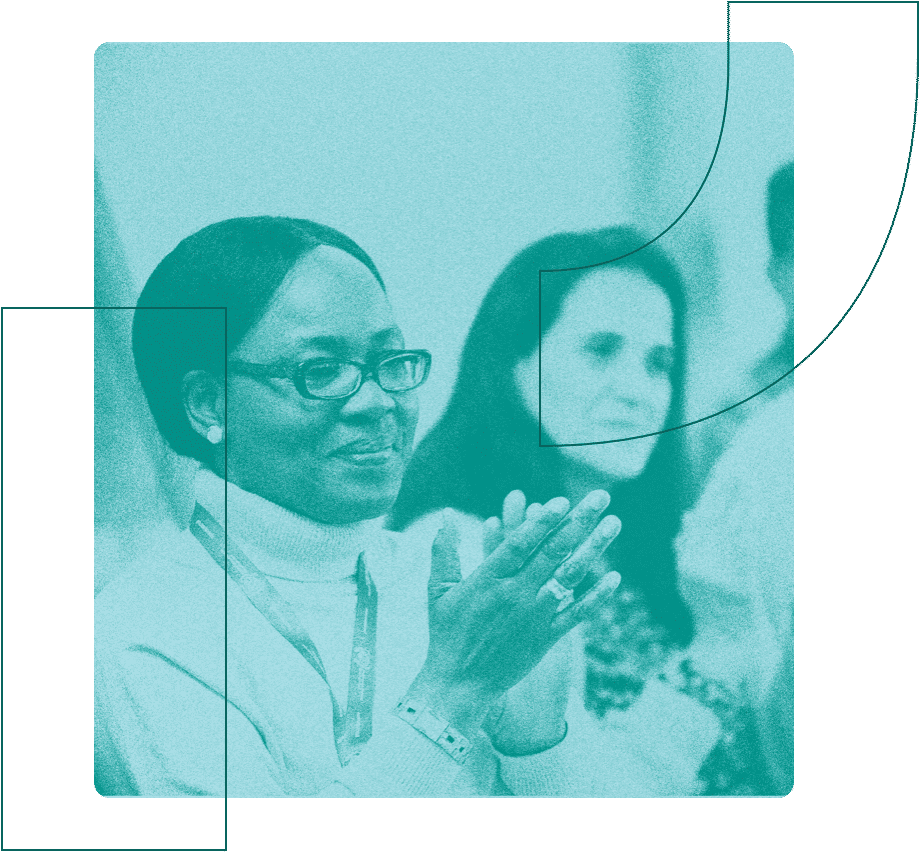
In commemoration of its 20th anniversary, UNSSC invites all to join in marking the successes and gains achieved to date.
Our programmes continue to attract an extraordinary group of participants and position them to become outstanding leaders and effective problem solvers. For the past 20 years UNSSC has been breaking new ground through its programmes. Facilitated by leading experts from a wide range of disciplines, our programmes give participants the tools they need to address the problems of a rapidly changing world.
Pioneering learning in support of UN reform
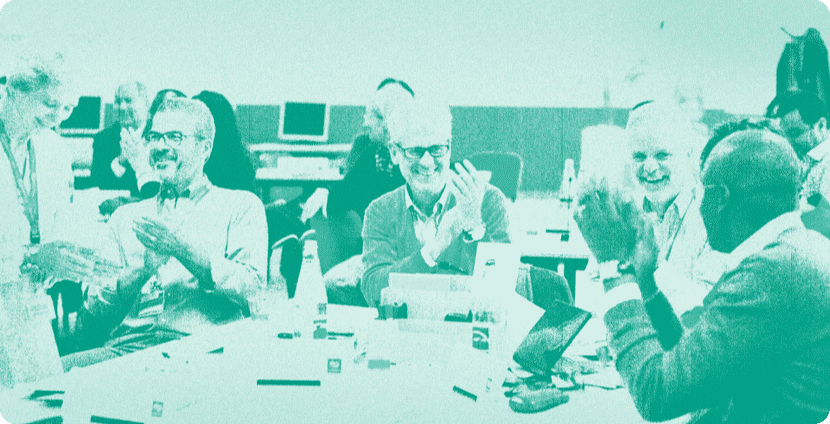

Building capacities for effective coordination
To function effectively, UN entities working at country, regional and global levels need to coordinate. Led by Resident Coordinators (RCs) and made up of the UN entities working on development in a country, UN Country Teams (UNCTs) are important drivers of development coherence. Strengthening their capacity is critical for ensuring system-wide accountability and for streamlining support to national counterparts.
In January 2000, the United Nations Development Group (UNDG) determined there was a need to boost the capacities of UNCTs to better support Common Country Assessments (CCA) and the UN Development Assistance Framework (UNDAF). These two instruments are essential mechanisms for engineering UN reforms at the country level.
Against this backdrop, the UNDG chose UNSSC to develop a Resident Coordinator System (RCS) Learning Support Programme. At the time UNSSC was merely a project associated with the International Training Centre of the International Labour Organization. Launched in February 2000, the RCS was created to strengthen RCs and UNCTs in their common programming processes.
A two-pronged approach was deployed beginning with a Training of Trainers (TOT) held in Turin. A select group of participants was nominated by UN agencies, together with UNDG’s Working Group on Training and UNSSC. The TOT workshop occurred over five days, offering participants exposure to CCA/UNDAF processes and the context and techniques to deliver learning to UNCTs requesting assistance. Upon completion, participants were deployed to UNCTs.
The second part was the deployment of UNSSC trainers to provide incountry training support. An important element of both approaches was teambuilding to foster collaboration among UNCT staff. Today, UNSSC continues to provide support to Resident Coordinators and UNCTs through a range of learning programmes.
An early warning system, developed by the UN
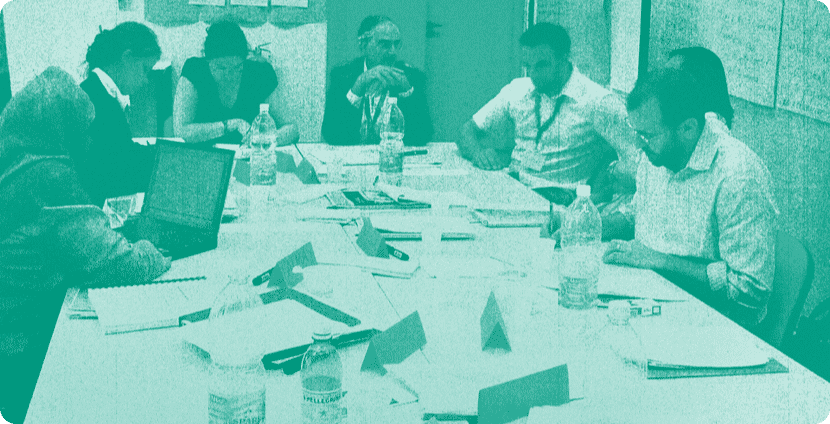

Training staff to detect trouble by developing mechanisms that save lives and head off crises in communities
The United Nations established conflict prevention efforts to support staff and partner organizations in early warning and prevention measures. In 1998, the UNSSC, with support from the ITCILO, launched the "Early Warning and Preventive Measures" (EWPM) programme. The programme aimed to increase awareness, enhance skills and promote coordination within the UN system and with external stakeholders.
Funded by UNSSC resources, governments, and the Turner Foundation, the programme included workshops conducted annually in different regions, bringing together participants from the UN, regional organizations, civil society, Member States and the private sector. The programme was developed in partnership with the London School of Economics and the UN’s Department of Political Affairs.
Building on feedback and stakeholder consultations, the programme evolved to provide interactive learning experiences. Participants examined conflict causes, stages and early-warning analysis techniques. They also explored coordination mechanisms, policy recommendations and preventive action strategies.
Due to high demand, UNSSC initiated a "training of trainers" to expand the pool of EWPM trainers from various organizations. Trainers were deployed to field locations to deliver workshops, contributing to increased awareness and improved coordination between headquarters and field staff.
An impact evaluation showed the success of EWPM in raising awareness and promoting a unified approach to early warning and preventive action. UNSSC continues its capacity-building efforts in conflict prevention, developing new learning offerings to address emerging peace and security challenges while emphasizing prevention and sustaining peace.
A new forum for learning managers
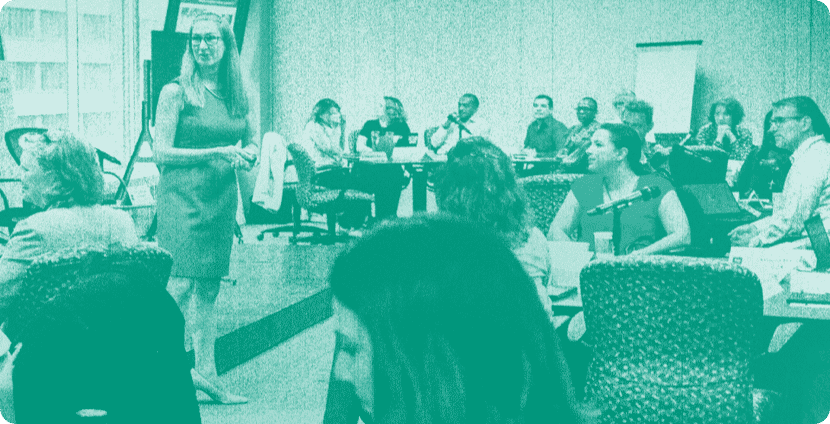

Staff College initiative blooms into dynamic community
Providing staff with regular learning and development opportunities is important for the advancement of the United Nations. Learning Managers play a fundamental role in this process. They make learning more accessible, exploring new approaches and professional development, and providing insights on common learning agendas among UN agencies and other international organizations.
In 1996 the Staff College, operating as a project supported by the International Training Centre of the International Labour Organization (ITCILO), conceived the Learning Managers Forum. This was envisioned as an annual gathering for those within the UN and other international organizations who were responsible for learning, training and staff development. UNSSC hosted its first Learning Manager’s Forum as an independent UN organization in 2002. Since then, the Forum has become an annual event where learning managers and practitioners of the UN system collaborate and partner to move the UN system’s learning agenda forward. The Forum is a space where learning managers gain exposure to fresh approaches and contribute to a common learning agenda.
The Forum has since expanded to include the learning community at large. Since its inception it has attracted more than 800 participants. Community building and networking initiatives like a social media group, periodic newsletters, the Innovation in Learning webinar series and projects have forged opportunities to streamline and co-create, all the while establishing a flourishing community of co-creators. The Forum has become the go-to network for learning practitioners from across the UN system.
Teaming up to make peacekeeping work
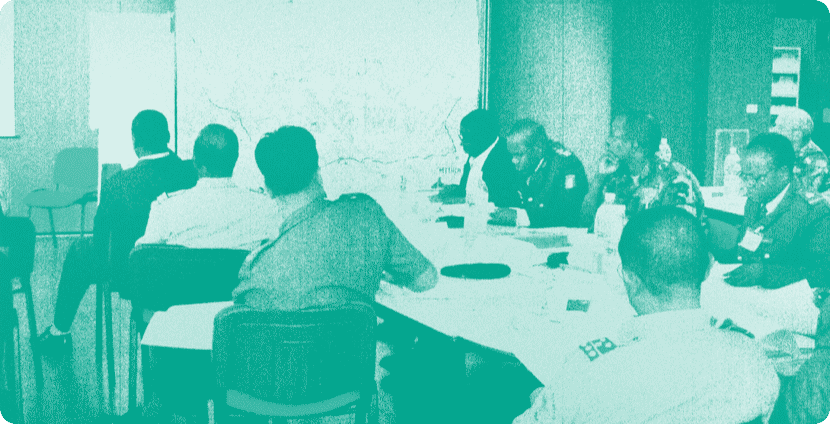

UNSSC devises practical trainings for African military personnel
Under the 2001 New Partnership for Africa’s Development (NEPAD), several UN Member States pledged support for NEPAD’s vision and policy framework for accelerating economic cooperation and integration in Africa. In tandem, the Italian Government promoted African peace and security initiatives with the aim of strengthening institutional capacities for preventing, managing and resolving conflict by organizing and financing peacekeeping programmes for African military personnel. The Italian Ministry of Foreign Affairs made a significant financial and political commitment and tasked UNSSC to develop learning programmes to train African military personnel in conflict prevention, human rights and peacekeeping.
The learning programme has made meaningful contributions in building the capacity of African military institutions, enabling them to better manage and participate in regional and national peacekeeping missions. In 2004, two three-week residential courses for 70 senior military officers from African countries were held in Turin and Brindisi.
The learning programme provided participants with knowledge on the principles, concepts and procedures of UN peacekeeping, humanitarian assistance and aspects of protecting human rights. To ensure the delivery of an effective, well-rounded learning experience, UNSSC brought together a training team of resource persons from UNSSC, the Department of Peacekeeping Operations (UN-DPKO), the International Labour Organization (ILO), the Office of the High Commissioner for Human Rights (OHCHR), the United Nations High Commissioner for Refugees (UNHCR), the Institute for Security Studies (ISS), the Sant'Anna School of Advanced Studies, the Army Training Command and Application School in Turin and The Alpine Brigade "Taurinense."
Delegates gained insights on the application of procedures of UN Planning Processes at the Force Commander level, and they went on to train fellow colleagues also working in peacekeeping operations. Training military personnel is a long-term endeavour measured in decades, not years. Even where clear progress is made, one-off training initiatives are no panacea.
This experience suggests room exists to explore practical ways to build more effective and accountable peacekeeping missions.
New look for a new Staff College
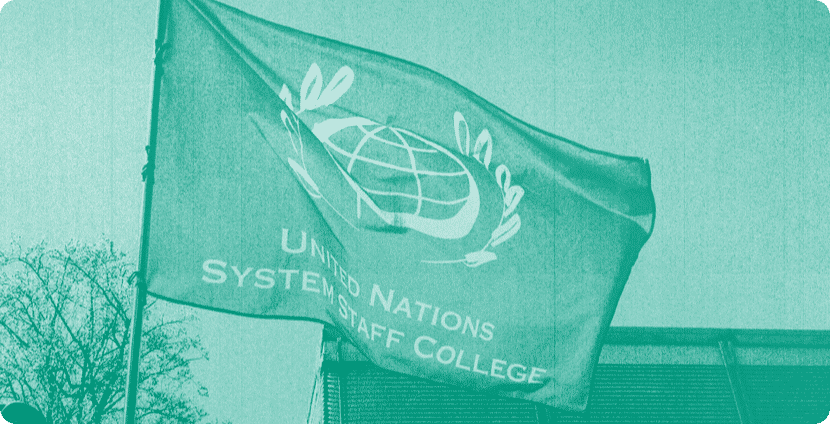

Renowned Italian design house Pininfarina imprints the Staff College with a new brand identity pro bono
The UNSSC’s first logo, from 1997, portrayed students and a book. At the time, the College was a project of the International Training Centre of the International Labour Organization (ITC/ILO).
In 2002, when the Staff College became an independent entity, with its own Statute and Board of Governors, a need for better marketing became clear. In particular, the Staff College wanted to become better known to staff and organizations throughout the UN system, as well as to Member States and potential collaborators in the public, private and voluntary sectors. This wasn’t just about branding, but about survival too. At the time the College earned 80 per cent of budget from fee-paying students. It was hoped that more recognition for the Staff College might translate into more participants.
Under its 2002 statute, the Staff College acquired a changed mission to act as a change agent, with a mandate to help modernize the management culture and improve the UN’s operational effectiveness. A new brand identity was launched to the world in 2005. The Staff College’s clean, swooping modern logo was created pro-bono by Pininfarina, the famous Italian design agency. The logo and other brand elements were meant to reflect a modern, flexible and personalized United Nations.
In 2021 the Staff College underwent a brand refresh, updating the visual identity of the College while maintaining the 2005 brand mark. This new visual identity, rejuvenated for the digital age, better reflects the role and ethos of the institution and captures the vitality with which UNSSC approaches its mission.
A Secretary-General retreat that put UNSSC on the map
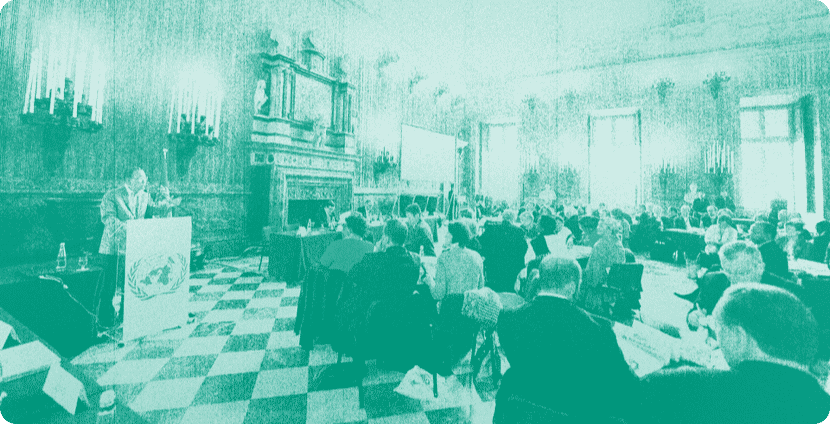

A safe space to discuss UN priorities and emerging issues
Leadership plays a central role in the success and direction of every organization. The UN’s leaders play crucial roles in shaping the organization’s common vision and commitments to shared goals. UN leaders also provide teams with the knowledge and tools to achieve organizational goals. In 2007 the Staff College was the site of the organization’s first-ever United Nations (UN) Torino Retreat, where UN Secretary-General Ban Ki-moon huddled with his closest team of collaborators.
The Retreat brought together the Secretary-General, Deputy Secretary- General, Chef de Cabinet as well as the many Under-Secretaries-Generals and Assistant Secretaries-Generals. The retreat was enriched by keynote speeches from authorities like Ellen Johnson Sirleaf, Javier Solana and José Barroso.
The Staff College was chosen as the venue because it provided a safe space to discuss UN priorities and emerging issues of the day. Through this event, the Staff College quickly became more widely known and appreciated among senior UN officials. Following the success of the first retreat, this high-level gathering became a reoccurring annual event, until 2015. It was usually held towards the end of the summer, in preparation for the General Assembly in September.
Equipping UN personnel for safe and effective field operations
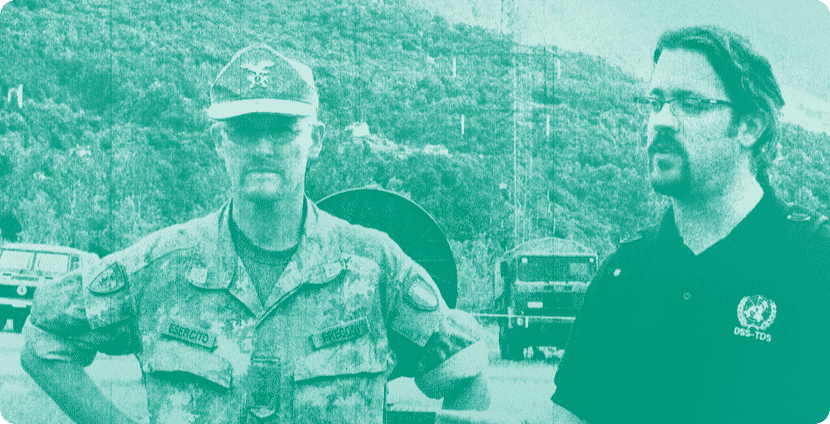

Comprehensive training ensures confidence and security for UN staff in complex environments
To enhance the effectiveness of UN civilian personnel in peace operations, the Department of Safety and Security (UNDSS) and UNSSC developed the Safe and Secure Approaches in Field Environments (SSAFE) training programme in 2007. This comprehensive programme equips UN staff with a shared understanding of principles, guidelines and policies for operating in complex and hazardous environments. Through theoretical modules, simulations and role-playing, SSAFE has successfully trained nearly 100,000 personnel in over 65 countries. It ensures that deployed staff from the UN system and partner organizations can carry out their mandates safely. The programme also includes a "Train the Trainers" component, creating a pool of capable security officers and trainers to support and train their colleagues. SSAFE continues to fulfil its mission of preparing UN personnel for field missions with confidence.
Building stronger leadership for global challenges
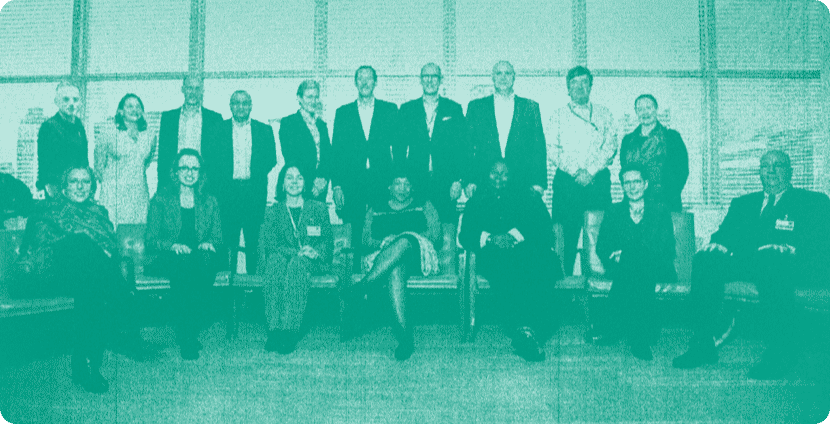

The UN Leaders programme offers practical training for senior UN managers seeking to drive innovation, collaboration and resilience
The UN Leaders Programme (UNLP) was developed in response to the need for practical leadership training for UN leaders in addressing complex global challenges. Launched in 2009, the programme was designed for senior managers within the UN system, including both headquarters and country-level staff. It aimed to provide participants with a shared understanding of priorities, such as climate change, and their roles and responsibilities in addressing these challenges.
The UNLP was initially a creative hybrid of theory, practice and self-reflection. Its first cohort focused on climate change. Participants rated the event 4.9 out of 5. Subsequent sessions addressed leadership, ethics and accountability. Over the years, the programme has been held at locations around the world, including New York, Geneva, Turin, Bangkok and Nairobi.
During the COVID-19 pandemic, the course transformed and was reintroduced as an interactive online learning solution. This adaptation allowed leaders to explore leadership in the context of innovation, transformation, collaboration and resilience. The programme encourages participants to reflect upon and strengthen their leadership approaches while making deeper connections with colleagues from throughout the UN system.
The UNLP incorporates the concept of Adaptive Leadership. It is aligned with the UN system Leadership Framework and aims to equip participants with the skills and mindset needed to address the challenges of today's world.
Overall, the course plays a crucial role in enhancing the leadership capacities of UN managers, providing practical training and empowering them to navigate and make a positive impact in a rapidly changing global landscape.
Dialogue series for DSRSGs
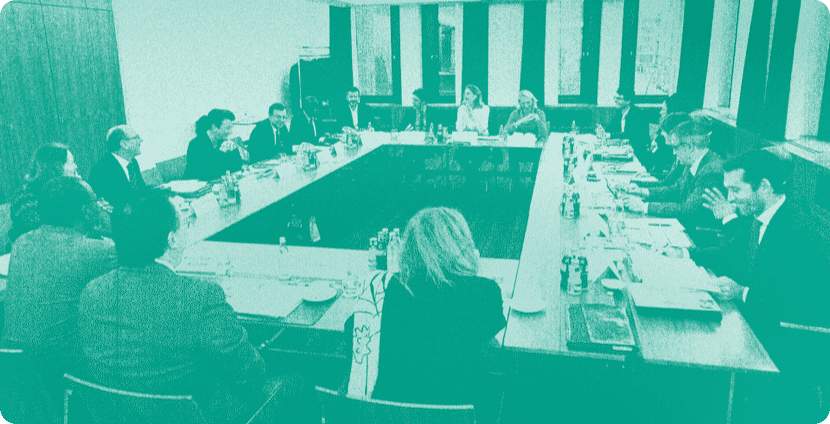

The Staff College hosts speakers and events to highlight cutting-edge research and bring together the UN community in provocative discussions about the present and future of sustainable development
The Dialogue Series for Deputy Special Representatives of the Secretary- General (DSRSGs) is an annual forum where UN policymakers and academics come together to discuss emerging security concerns and make contributions to UN policy debates. The series began in 2009 in partnership with the Centre for International Peace Operations (ZIF) in Berlin and was supported by the German Foreign Office. The series has been advancing critical knowledge among DSRSGs by providing a safe space for discussions and meeting high-level UN representatives from headquarters.
The dialogue series began with a focus on the global financial crisis, public spending and peace operations. It later shifted to election processes, scenarios for peace operations in 2025 and critical dilemmas related to the Rule of Law. In 2014, the forum discussed the new generation of non-state armed groups, which led to the development of a learning solution to build the UN's capacity to analyse and understand emerging actors. In 2015, the series discussed priorities for implementing the recommendations of the High-Level Independent Panel on Peace Operations.
Since 2017 the dialogues have examined challenges and practical solutions to issues at the forefront of peace operations. These included operationalizing conflict prevention, the sustaining peace resolutions, working with local actors and partners, understanding climate security and capitalizing on digital technologies and data. The series has shown the variety of security issues that can impact peace operations which are increasingly complex, interlinked and requiring bespoke solutions.
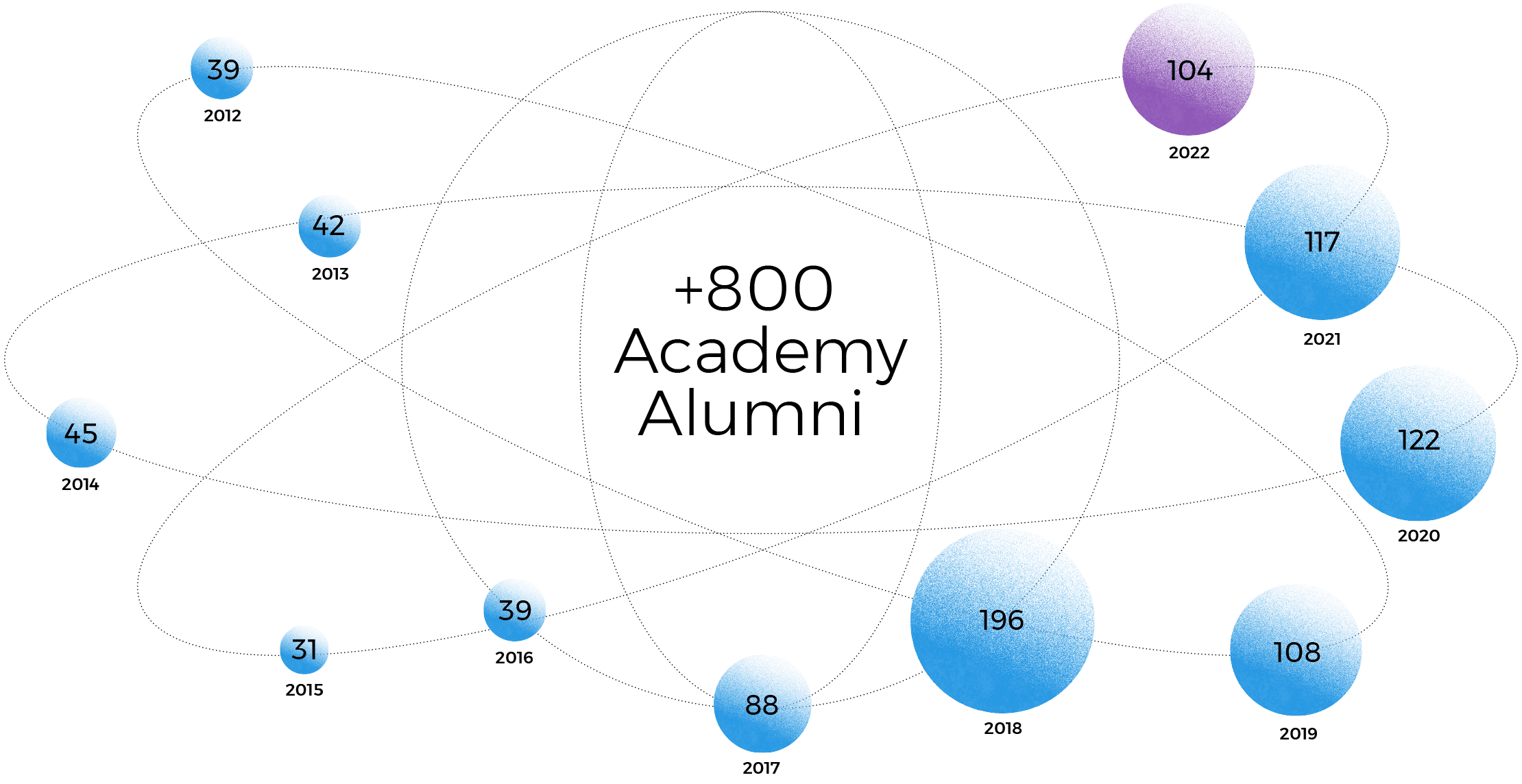
UN Summer Academy
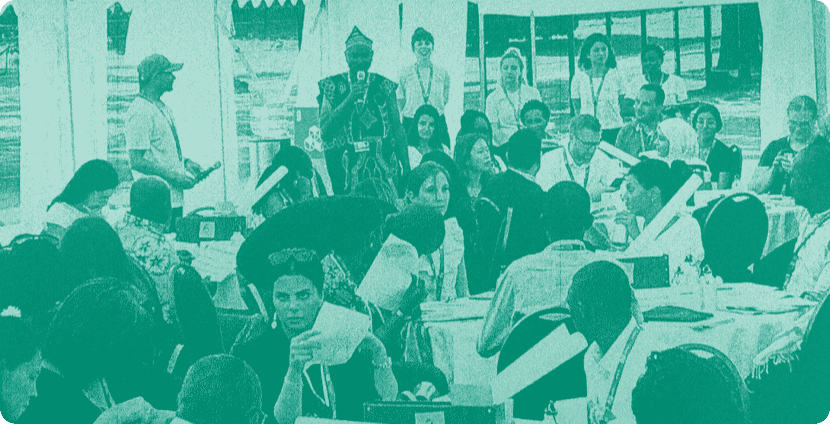

Advancing sustainable development through collaborative learning
The UN Summer Academy was launched to address the need for global dialogue and action on sustainable development. It serves as a multi-stakeholder platform for learning, partnering, co-creating and exchanging knowledge. By delving into key thematic areas and exploring the role of diverse actors in sustainable development, the Academy fosters understanding and facilitates innovative approaches to sustainable development.
Since its inception in 2012, this annual event has adapted and innovated to meet changing circumstances and maintain its relevance. Even amid unprecedented challenges such as the global pandemic, the UN Summer Academy has ensured the continuity of vital discussions and learning opportunities. We have built a robust alumni network of nearly a thousand professionals and continually engage participants through a faculty of notable figures including former Deputy Secretary-General Jan Eliasson and current Deputy Secretary-General Amina J. Mohammed. In 2022, UNSSC celebrated its 11th UN Summer Academy. Its theme was Sustainable Transformative Pathways.
The UN Summer Academy celebrates diversity by inviting a broad range of participants. These include United Nations System affiliates, civil society representatives, private sector professionals, postgraduate students and emerging leaders in various fields. This inclusive approach enriches discussions. Indeed, the Academy takes pride in being the UN’s first educational initiative to convene such a diverse cohort from the United Nations sphere and beyond.
UN Lab for Organizational Change and Knowledge (UNLOCK)
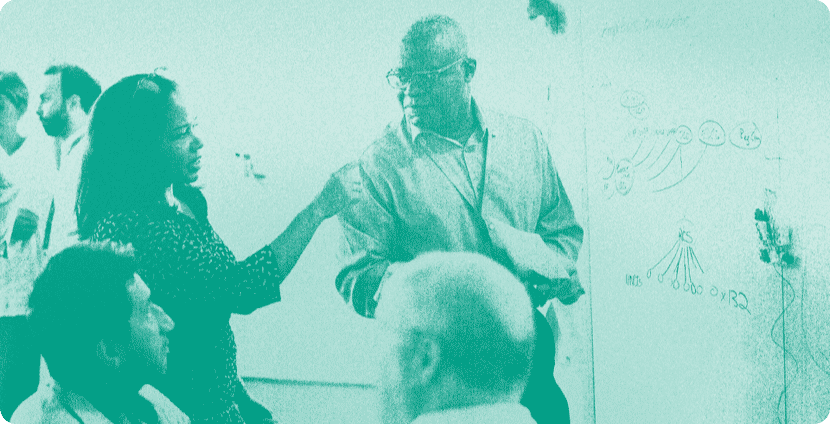

Connecting change practitioners, fostering collaboration and addressing change management challenges
UNSSC established the UN Lab for Organizational Change and Knowledge (UNLOCK) in 2015 to drive transformation within the United Nations to align with the 2030 Agenda for Sustainable Development. UNLOCK focuses on innovation, collaboration, leadership and staff engagement to shift mindsets, practices and structures throughout the UN system. It was created by change practitioners from UN entities whose aim was to build a network connecting and supporting one another in organizational change initiatives.
The UNLOCK network meets regularly and their discussions inform the creation of case studies. During the COVID-19 pandemic, the network became even more closely connected, sharing insights and resources on navigating the impacts of the crisis. UNSSC hosted the sixth annual peer exchange in June 2021, covering topics such as hybrid working, the UN efficiency agenda, anti-racism and systems thinking.
UNSSC, through its UNLOCK initiative, provides advisory services to UN entities.
Getting more women into UN leadership positions
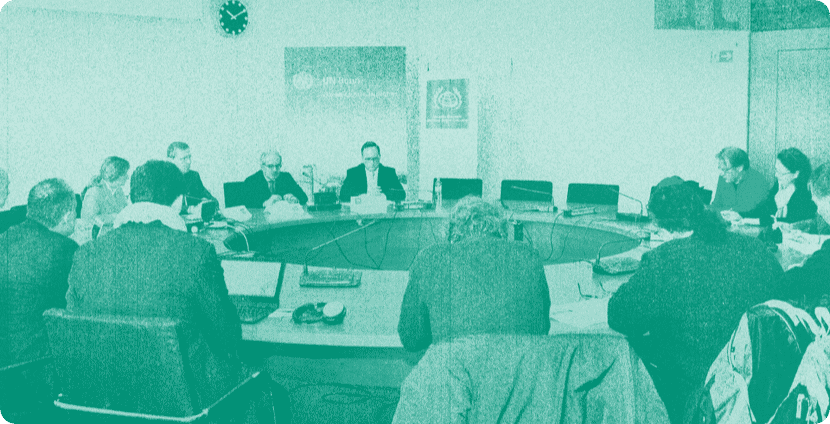

Promoting a more gender-balanced UN workplace
Ensuring women’s full and effective participation and equal opportunities for leadership at all levels of decision-making is a central objective of the 2030 Agenda for Sustainable Development. For the UN to remain a standard bearer of gender parity and equality, it became paramount to sustain gender progress within the organization by placing women in senior leadership positions. In 2014, when the Agenda was still being negotiated, UNSSC was working towards that vision through a tailor-made leadership programme for female UN staff.
In 2015 the first interagency edition of the Leadership, Women and the UN Programme was launched. Its aims were to promote the expansion and renewal of prevalent paradigms of leadership and ensure a more gender-balanced UN workplace. The urgency for this change has been recently reinforced by the system-wide Strategy on Gender Parity and the UN reform agenda launched by the Secretary General.
The Leadership, Women and the UN programme continues to invest in female staff at the P4 and P5 level. Since its inception, over 700 women leaders have taken part.
UNSSC's Knowledge Centre for Sustainable Development


Championing sustainable development learning and UN reform for a sustainable future
In September 2015, UN Member States adopted the 2030 Agenda for Sustainable Development, underlining people, planet, peace, prosperity and partnerships as guiding principles for global, regional and national strategies, policies and programmes.
To address the comprehensive learning management needs of UN staff and partners, and with the support of the Federal Government of Germany, in 2016 UNSSC established its Knowledge Centre for Sustainable Development in Bonn, Germany. The Knowledge Centre facilitates transformative learning opportunities across the UN system and beyond, supporting sustainable development initiatives and UN development system reform.
Despite global challenges, such as the COVID-19 pandemic, the Knowledge Centre continues to grow. As a recognized centre of excellence, the UNSSC Knowledge Centre for Sustainable Development is dedicated to ensuring the UN's ability to foster more viable futures for all.
Across 236 dedicated courses and programmes, complemented by 147 knowledge and learning exchanges we have trained more than 22,500 professionals. Enrolment has grown after online programmes were expanded in 2020 leading to 70,000 new registrations across sustainable development learning offerings.
UNSSC's UN Country Team Leadership Programme revitalized
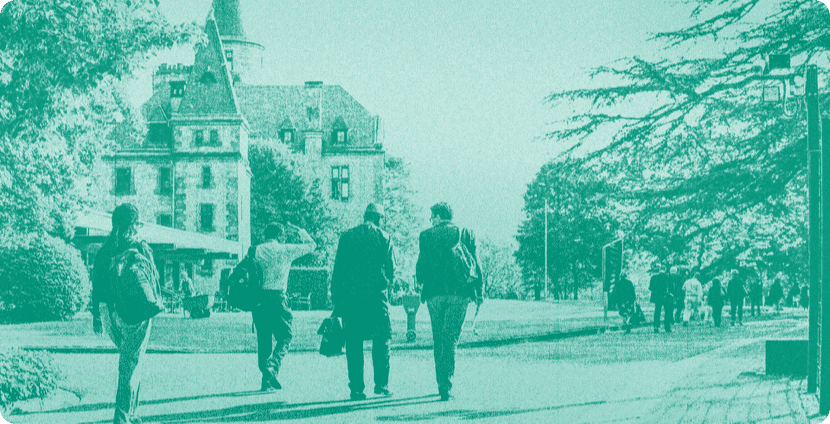

Empowering the next generation of UN leaders for sustainable development
United Nations Country Teams (UNCTs) operate in 132 countries, encompassing all 162 countries with UN programmes. UNCTs comprise UN entities working on sustainable development, emergency, recovery and transition in programme countries. The UN Sustainable Development Cooperation Framework, their joint planning instrument, forms a vital partnership compact between the UN and governments, promoting national ownership and coherent implementation of sustainable development strategies. To be effective, UNCTs require demand-driven, skilled leaders capable of addressing countries' specific development priorities and adopting a whole-of-system approach.
In response to these needs, in 2018, UNSSC updated and refreshed its UN Country Team Leadership Course. This learning programme provides UN’s managers an opportunity to rethink approaches, unlearn outdated methods and redefine their contributions as individuals, UN entity representatives and UNCT members.
UNSSC and UNITAR launch the UN SDG: Learn initiative at the High-Level Political Forum (HLPF)
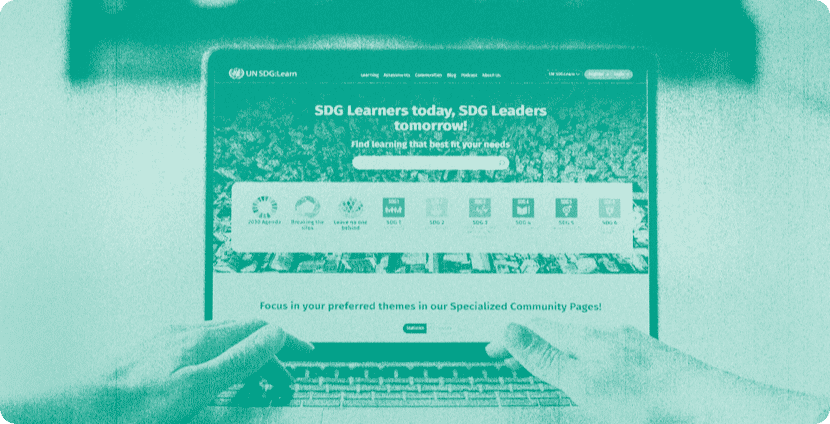

Platform supports interconnected action on the SDG
UNSSC and the United Nations Institute for Training and Research (UNITAR) launched “UN SDG: Learn Initiative”, an online learning platform on sustainable development. The site promotes holistic thinking, integrated approaches and collaborative partnerships. It has provided over 900 courses and microlearning modules developed by more than 150 organizations and institutions.
By the end of 2022, UN SDG: Learn had engaged more than 200,000 users, with almost 9,000 registered users benefiting from free premium services such as individualized learning pathways, customized courses, microlearning recommendations and SDG assessments evaluating learners' cross-competencies based on UNESCO's criteria. The UN SDG: Learn platform encourages comprehensive, well-rounded perspectives that consider the interconnectedness of the 2030 Agenda for Sustainable Development. Learning that embraces integrated approaches to effectively address complexities of sustainable development challenges and create synergies between different sectors and stakeholders is crucial.
In 2021, UN SDG: Learn introduced SDG Learncast, a podcast series led by UNSSC featuring leaders of the 2030 Agenda and the SDGs. The series has produced several episodes on topics such as AI, blockchain technology, science and innovation and climate knowledge.
The College goes virtual


Quarantine amplifies online learning
The impact of the pandemic on education has been diverse, profound and different for each learning institution. Lockdowns throughout many parts of the world greatly increased demand for digital learning. This triggered a spirit of resilience and agility within the Staff College.
Almost overnight the Staff College’s portfolio of classes was reinvented. All face-to-face offerings planned for 2020 were discontinued and for a time the Staff College became an entirely online learning and training institution. To cope with demand, investments in new technology were accelerated. That year the number of online participants grew by over 840 per cent.
In addition, the Staff College drew from its experiences digitizing learning solutions to support other UN entities developing their own online courses. This increased the number of free online offerings for United Nations staff and partner entities from 4 per cent in 2019 to 28 per cent of total activities in 2020.
Through a broad range of online learning products on timely topics such as “Helping teams navigate uncertainty” and “United Nations leadership in times of uncertainty” the Staff College played a central role in serving the UN system’s response to the pandemic.
Looking ahead, the College will continue to support the UN system to “build back better”.

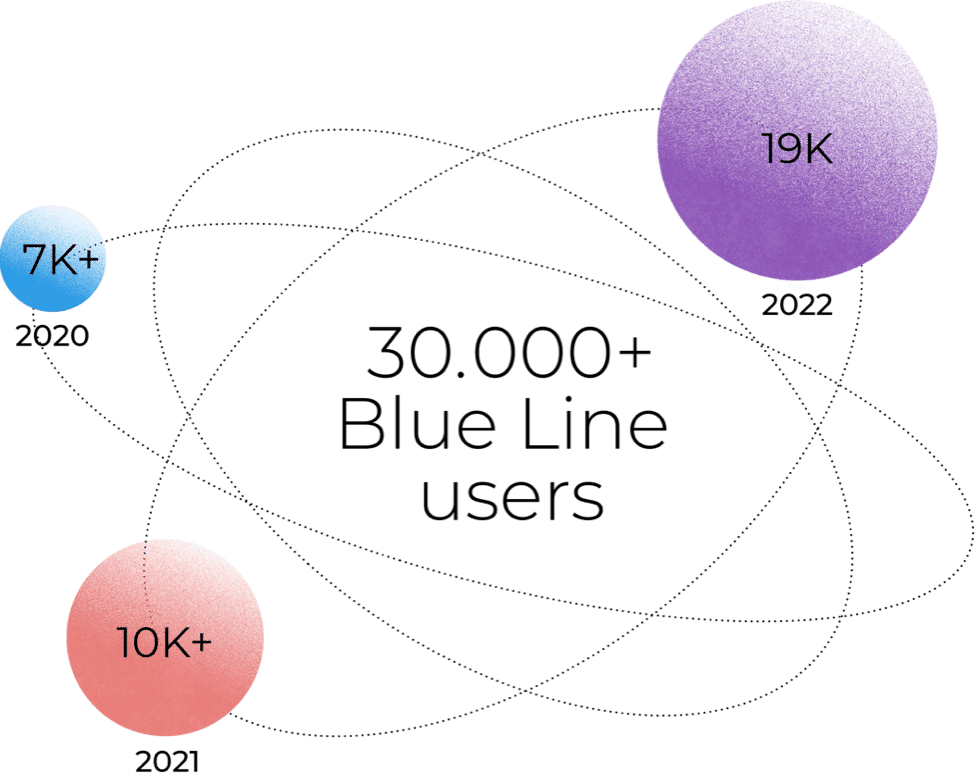

In response to demand for self-directed learning, the Blue Line was launched in April 2020 as an ecosystem for all UN staff to connect and advance their professional development online.
UNSSC launches Blue Line for flexible online learning
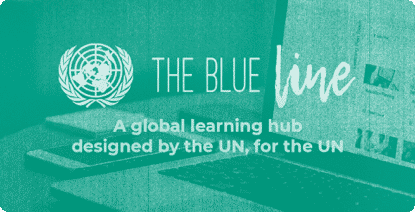

Self-directed platform revolutionizes professional development for over 52 per cent of the personnel in the UN system today
UNSSC launched the Blue Line in 2020 as an online learning hub designed by the UN for the UN. The Blue Line has quickly become a thriving One-UN inter-agency learning marketplace, with over 50 online modules and 12 learning tools available, and over 30,000 active participants.
The Blue Line is designed to support UN staff in developing the skills and knowledge they need to effectively address the challenges facing the world today. The platform offers a variety of learning opportunities, including online courses, webinars, and blended learning programmes. The Blue Line also serves as a community forum where learners can connect with each other and share knowledge.
The Blue Line is a valuable resource for UN staff looking to develop their skills and knowledge. The platform is constantly evolving and adding new content, ensuring that it remains relevant to the needs of users. The Blue Line is a key part of UNSSC’s efforts to build a more capable and effective United Nations.
Advancing inclusive peacebuilding
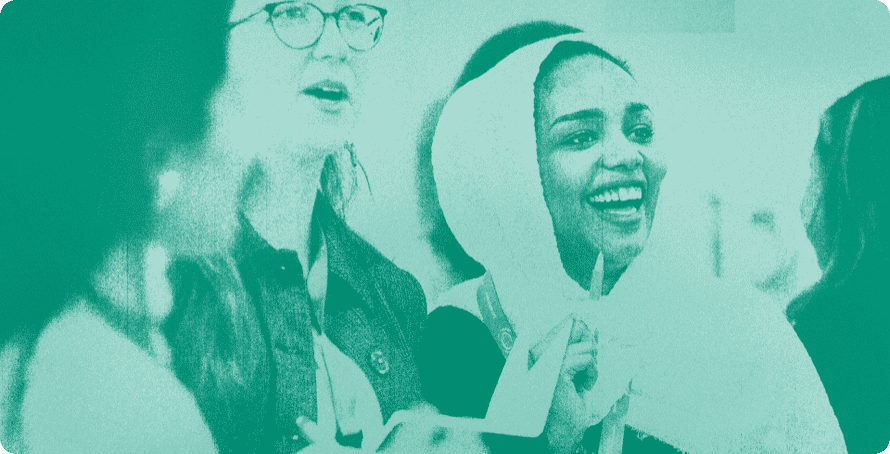

UN System Staff College develops learning programmes to empower women and youth peacebuilders
Over the past two decades, global frameworks for sustainable and inclusive peace have undergone significant changes. The Women, Peace and Security (WPS) agenda, established in 2000 through UN Security Council Resolution 1325, and the subsequent Youth, Peace and Security (YPS) agenda, initiated in 2015 with UNSCR 2250, have played crucial roles. Resolutions 2419 (2018) and 2535 (2020) emphasize inclusive programme design, planning and decision-making for conflict prevention and resolution, while Resolution 2250 recognizes the importance of youth in sustaining peace. Together, these policy frameworks serve as a blueprint for the UN's inclusive peacebuilding efforts.
In response to the need for capacity development on youth, peace and security, the UN System Staff College partnered with the Folke Bernadotte Academy (FBA) to develop two learning programmes: "Realizing the Youth, Peace and Security Agenda" and the "Youth, Peace and Security Primer." One course targets UN YPS advisers and focal points, while the Primer is an open, free online tool available to practitioners from the UN, government, civil society, and academia, offered in multiple languages. These resources, based on the "Youth, Peace and Security: A Programming Handbook" developed by UNFPA, UNDP, DPPA, and FBA, aim to establish a common understanding and approach for implementing the Youth, Peace and Security Agenda across all UN entities working with and for youth in peace and security.
Strengthening peace in a changing climate


UN System Staff College develops course on climate-sensitive programming for sustainable peacebuilding
In many regions, climate change poses a threat to peacebuilding efforts by intensifying resource competition and undermining stability. Countries experiencing both climate change and violent conflict have witnessed the indirect impact of rising sea levels, droughts, and floods on ongoing conflicts, further endangering vulnerable communities. Recognizing this interplay, Member States called for the establishment of knowledge management platforms and widespread trainings within the UN system to address the security dimensions of climate change in sustaining peace policies.
To meet this demand, in 2021 the UN System Staff College (UNSCC) developed the inaugural interagency course, "Climate-Sensitive Programming for Sustaining Peace". The course has been delivered to over 130 participants from various entities including the Secretariat, peacekeeping missions, agencies, civil society organizations, regional organizations, universities, think tanks and specialized agencies of Member States. By bridging knowledge gaps, the course equips participants with the expertise to implement an integrated approach to climate security and peacebuilding. It also emphasizes the importance of long-term climate-sensitive strategies across the UN system and offers contemporary approaches and tools for conducting localized climate risk assessments and integrating them into programmatic planning throughout the peacebuilding lifecycle.
Overall, the course contributes to enhancing awareness of the risk climate change poses to international peace and security, as well as local peacebuilding efforts, while fostering a comprehensive understanding of sustaining peace in the face of climate challenges.
Empowering sustainable development practitioners through free online learning resources


UNSSC collaborates with partners to foster knowledge exchange and skills development for the 2030 Agenda
Committed to fostering sustainable development skills and knowledge, and with the support of the German Federal Ministry for Economic Cooperation and Development, UNSSC adapted its business model and moved towards an increased offering of multiple free-of-charge, five-to-six-week facilitated online and self-paced courses which have directly benefitted over 15,000 online participants.
Free-of-charge courses have been well received and highly rated, and cover topics such as “the Paris Agreement on Climate Change as a Development Agenda”; “Policy Coherence for Sustainable Development”; “Circular Economy”; “Anti-Corruption”; and “Social Protection”. These courses were developed in partnership with key UN Agencies/Funds and Programmes and others such as UNFCCC, OECD, UNEP, UNDP and ILO.
As a direct result of the new free-of-charge offerings and the close collaboration with partners, in 2022, UNSSC partnered with multiple organizations within the UN and beyond to further scale online learning, also incorporating new technologies such as gamification, virtual reality, and artificial intelligence.
Empowering the UN's country-level impact
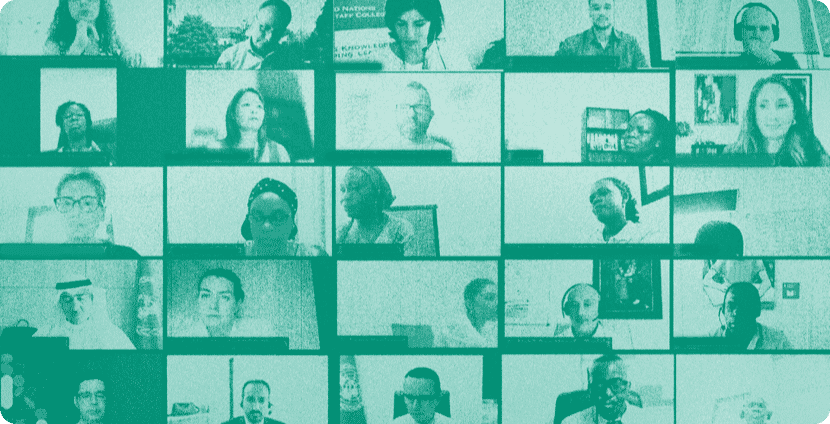

UNSSC's approach to equipping RCO staff for results
The United Nations System Staff College (UNSSC) is committed to playing an instrumental role in bolstering the effectiveness of the United Nations at country level.
Our programmes are tailored to strengthen the capabilities of the Resident Coordinators' Office (RCO) staff and facilitate a platform for knowledge sharing among leaders and practitioners. By providing a well-rounded curriculum on emerging sustainable development issues and cross-functional competencies, we ensure our staff's aptitude for addressing the critical challenges that our world faces.
In collaboration with the UN Development Coordination Office (UNDCO), we have developed immersive learning experiences and fostered communities of shared wisdom that allow RCO Team Leaders to exchange insights and learn from collective experiences across various global regions.
The UNSSC's free online course on the United Nations Sustainable Development Cooperation Framework is available in different languages, through virtual workshops and learning resources which are designed to reinforce the alignment of various UN agencies with national sustainable development priorities. These programmes have benefitted more than 5,000 learners.
Unlocking the potential of data for the United Nations
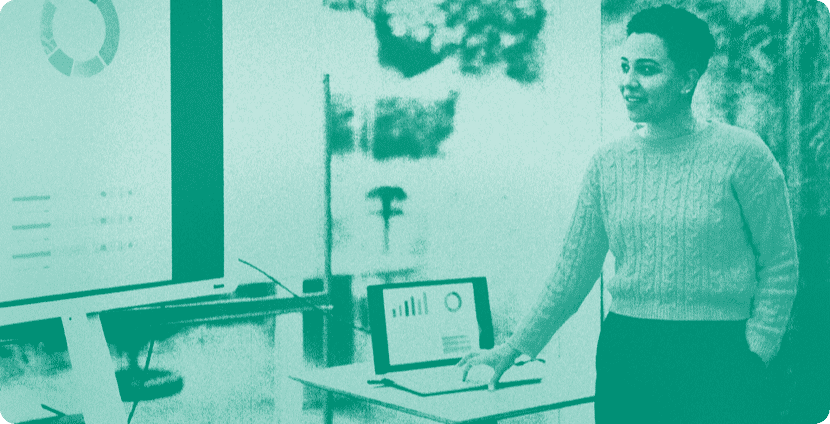

UN data analytics professional certificate
How can predictive analytics improve UN operations? Can big data be used to improve the lives of people and meet the SDGs?
The United Nations Secretary-General's Data Strategy identifies data and analytics as an essential and strategic asset for the UN system to advance its work in socioeconomic areas. The Data Analytics Professional Certificate (UN DAPC) is a unique data analytics programme developed in 2022 and fully tailored to the UN context. It draws from UNSSC's experience in designing and delivering a range of data learning offerings in collaboration with key UN data stakeholders such as the Committee of the Chief Statisticians of the UN System.
The UN DAPC was designed to prepare UN staff to unlock their data potential through a comprehensive and interactive overview of core data science concepts from descriptive to predictive analytics. UN staff will be better equipped to formulate problem statements for data-informed solutions, hone their skills to effectively communicate data analysis findings and deal with the ethical dilemmas and risks associated with real-world data cases. The programme follows a user-based approach to learning, encouraging the practical application of various tools and methods to solve some of the challenges that UN staff face through practical case studies and on-the-job-guided mentoring.
The UN DAPC is a key part of UNSSC's efforts to build a more data-driven United Nations.
United Nations efficiency successes


Over 4,000 enrol in online course Business Operations Strategy (BOS) 2.0 Practitioner Training
The Business Operations Strategy (BOS) 2.0 Practitioner Online Training, co-designed by UNSSC and the UN Development Coordination Office (DCO), seeks to strengthen cohesion within the UN development system and contribute to the Secretary-General’s Efficiency Agenda. By the end of 2022, more than 4,000 learners had registered, including 3,400 UN staff. So far, thanks to the programme about 700 UN professionals have achieved full BOS certification to support efficiency reform processes at the country level.
The BOS represents the spirit of inter-agency collaboration and is a place where colleagues can think how to collectively advance organizational and beneficiary interests based purely on common sense, good business cases and a willingness to cooperate and share.
UNSSC is committed to fostering a common management culture within the UN system and greater efficiencies through interagency collaboration, leadership and change management.


